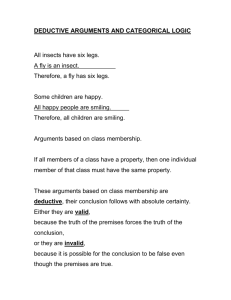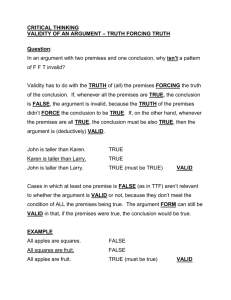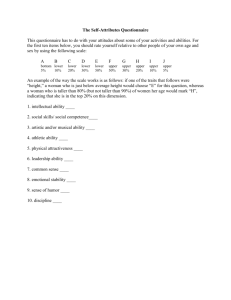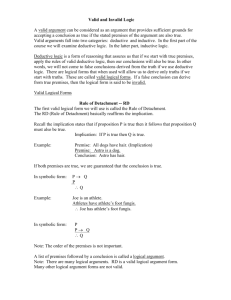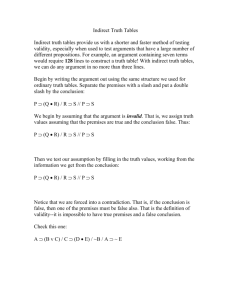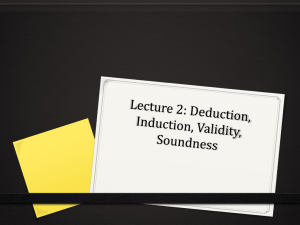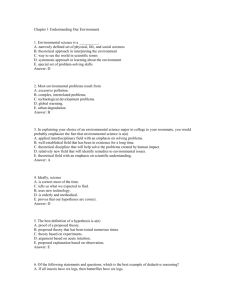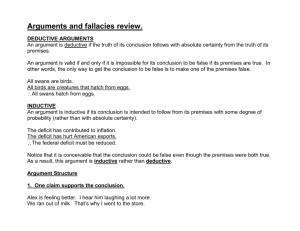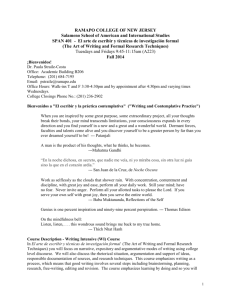Validity and Soundness in Arguments: Critical Thinking
advertisement
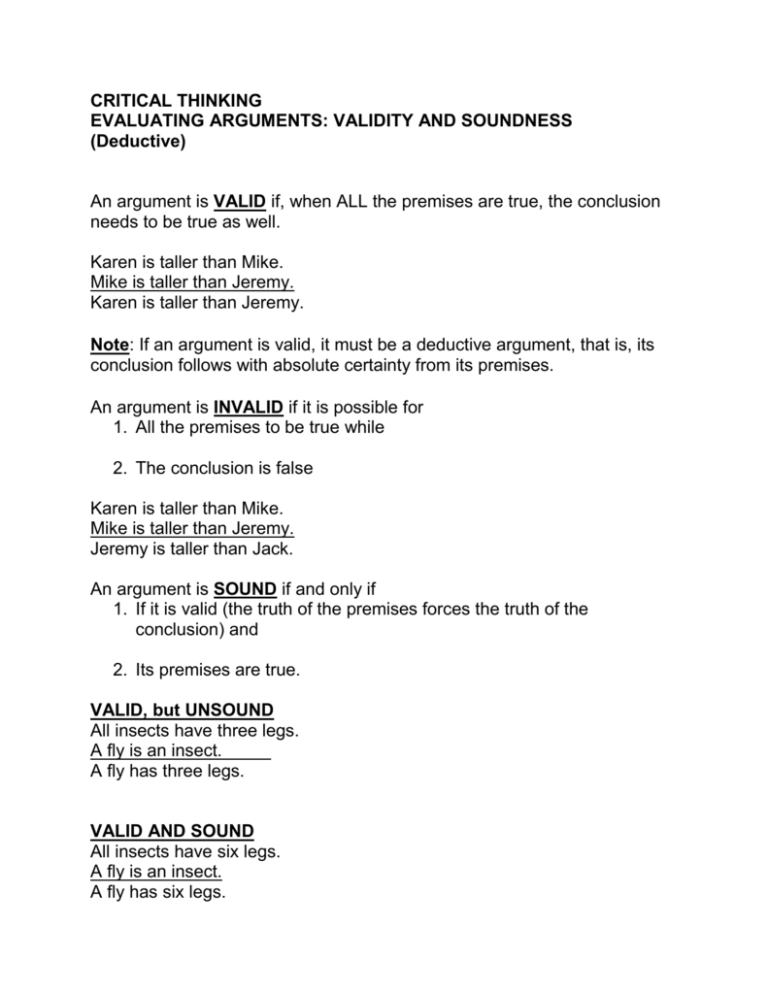
CRITICAL THINKING EVALUATING ARGUMENTS: VALIDITY AND SOUNDNESS (Deductive) An argument is VALID if, when ALL the premises are true, the conclusion needs to be true as well. Karen is taller than Mike. Mike is taller than Jeremy. Karen is taller than Jeremy. Note: If an argument is valid, it must be a deductive argument, that is, its conclusion follows with absolute certainty from its premises. An argument is INVALID if it is possible for 1. All the premises to be true while 2. The conclusion is false Karen is taller than Mike. Mike is taller than Jeremy. Jeremy is taller than Jack. An argument is SOUND if and only if 1. If it is valid (the truth of the premises forces the truth of the conclusion) and 2. Its premises are true. VALID, but UNSOUND All insects have three legs. A fly is an insect. A fly has three legs. VALID AND SOUND All insects have six legs. A fly is an insect. A fly has six legs.
